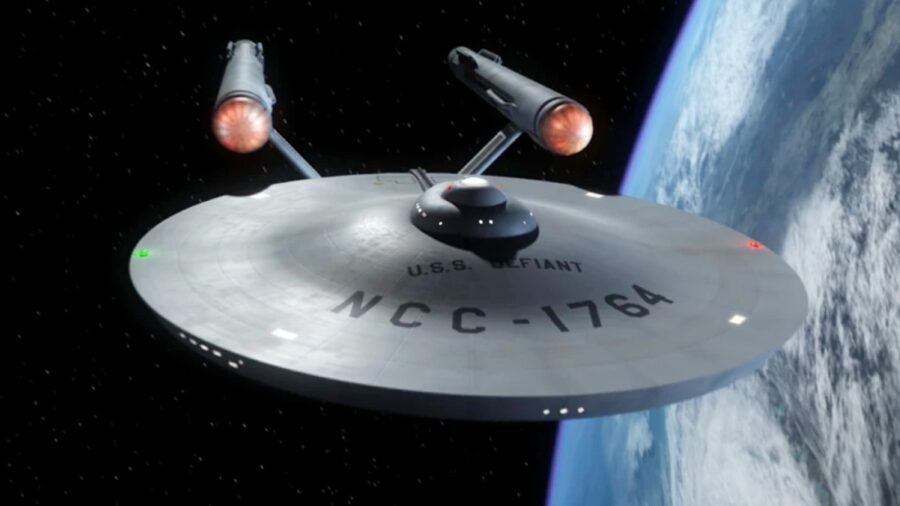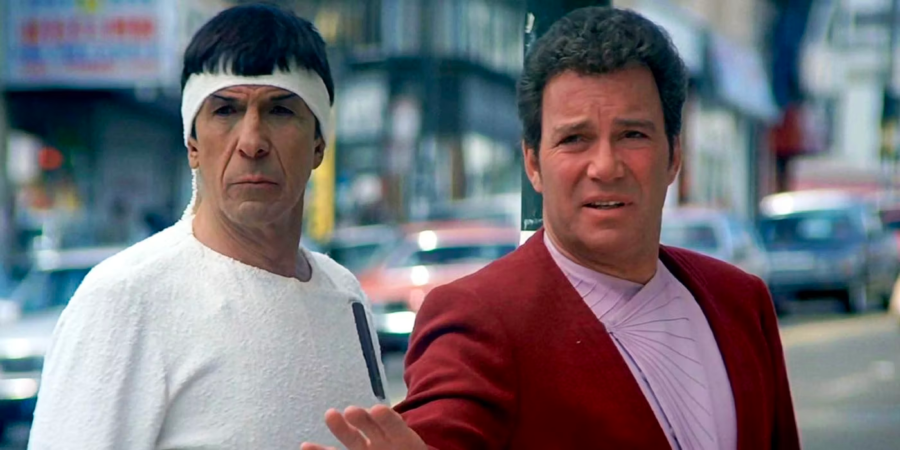Read Gene Roddenberry And Isaac Asimov’s Star Trek Discussions

Forget Tupac-Biggie, Ali-Frazier, or Apple-Microsoft; at one point, Issac Asimov vs. Gene Roddenberry was a rivalry for the ages.
In November 1966, two months after the premiere of Star Trek, renowned science fiction novelist Isaac Asimov wrote a scathing article about the numerous scientific inaccuracies found in many sci-fi TV shows of the day.
Gene Roddenberry took offense to this article written for TV Guide and wrote Asimov a respectful letter about the work his staff puts into making Star Trek as accurate as possible.
In a series of letter exchanges between the two sci-fi greats, Isaac Asimov and Gene Roddenberry discussed the many criticisms of Star Trek and the type of struggles Roddenberry had with the network to put the sci-fi series on the air.
Star Trek almost did not get on the air because it refused to do a juvenile science fiction, because it refused to put a “Lassie” aboard the space ship, and because it insisted on hiring Dick Matheson, Harlan Ellison, A.E. Van Vogt, Phil Farmer, and so on.”
Roddenberry continued, “getting Star Trek on the air was impossible, putting out a program like this on a TV budget is impossible, reaching the necessary mass audience without alienating the select SF audience is impossible, not succumbing to network pressure to “juvenilize” the show is impossible, keeping it on the air is impossible.”
Roddenberry later stated what the value of a sci-fi series like Star Trek was for the general audience,
“…if we are to believe our letters (now mounting into the thousands), we are reaching a vast number of people who never before understood SF or enjoyed it. We are, in fact, making fans—making future purchasers of SF magazines and novels, making future box office receipts for SF films.
We are, I sincerely hope, making new purchasers of “The Foundation” novels, “I, Robot,” “The Rest of the Robots,” and other of your excellent work.
We, and I personally, in our own way and beset with the strange problems of this mass communications media, work as proudly and as hard as any other SF writer in this land.”
Seven months later, after this letter, Asimov apologized to Roddenberry. The pair became friends and colleagues.

It even led to Roddenberry asking Asimov for advice in structuring the relationship between Captain Kirk (William Shatner) and Spock (Leonard Nimoy).
“I would dearly love to discuss with you a problem about the show and the format. It concerns Captain James Kirk and of course the actor who plays that role, William Shatner. Bill is a fine actor, has been in leads on Broadway, has done excellent motion pictures, is generally rated as fine an actor as we have in this country.
But we’re not getting the use of him that we should and it is not his fault. It’s easy to give good situations and good lines to Spock. Roddenberry continues, “…if we play Kirk as a true ship commander, strong and hard, devoted to career and service, it too often makes him seem unlikable.
On the other hand, if we play him too warm-hearted, friendly and so on, the attitude often is “how did a guy like that get to be a ship commander?”
This is a question that still lingers today. But Asimov gave Roddenberry insight on thematic and narrative structure. Asimov’s advice to the showrunner,
In some way, this is the example of the general problems of first banana/second banana. The star has to be a well-rounded individual but the supporting player can be a “humorous” man in the Elizabethan sense. He can specialize.
Reading this exchange between Isaac Asimov and Gene Roddenberry is extremely fascinating and watching their friendship flourish was incredibly rewarding. It’s wonderful to see this pair influence and inform each other’s work.
It also serves as a reminder that while one great might not respect another’s in the moment, having a dialogue about intentions, influences, and thought processes can often bridge a significant divide.
While clearly, Isaac Asimov wasn’t appreciative of Gene Roddenberry’s initial efforts on Star Trek, hearing the latter explain the process and the results had a softening effect (to say the least). This is often the case where dialogue is introduced around a disagreement. If both sides are being intellectually honest, and willing to hear the other, understandings are formed.
It also probably helps that, in this sense, Gene Roddenberry would have seen Isaac Asimov as a titan in the sci-fi world. So not getting defensive, but rather explanatory, helped quite a bit.
When the sci-fi mastesr can come together, we can solve any problem out there. And fans of the genre are the true winners here. Because when creators are held accountable, the product almost always improves in a really great way.












